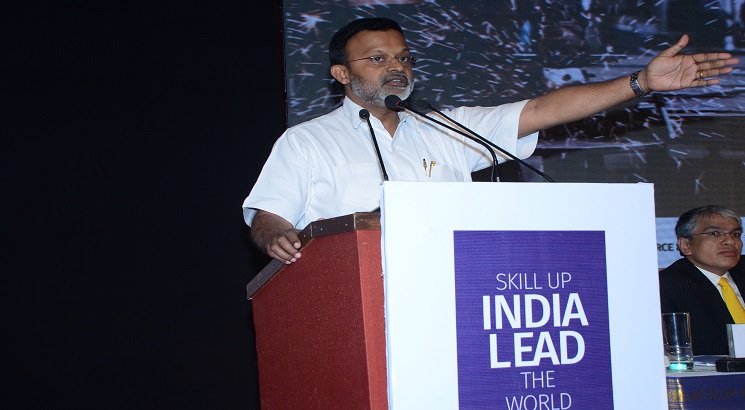“Many B.Ed Colleges Are Like Millstone Around India’s Neck”
Aeshwarya Tiwari | June 26, 2018 | 03:35 PM IST | 4 mins read

A.Santhosh Mathew, Former Chairperson, National Council for Teacher Education (NCTE), in an exclusive interview with Careers360 discusses various challenges with teachers education in India and measures being taken to check rogue B.Ed colleges...
Q. Do you think there is a need for reorientation of teacher educators in the emerging pedagogy?
A. We have some of the finest teachers in our country but the problem is in the context in which they are working, it is seriously compromised, what do you mean by seriously compromised the issue is, a class of colleges today has emerged which is like millstone around India’s neck, it is pulling down the entire teacher education sector. Now people will say let the market function, why do you come and poke your nose into this, students will decide where they want to go to.
I am saying yes, of course, students will decide but for that students need to have the information. So today what has happened is that there are colleges which are offering socks to the students, these days institutes say: join me, I will give you non-attending status which means you do not need to go to the institute but you will get your degree and institutes also attract young minds by saying that they will give you hundred percent attendance. You pay a little money to them, they will give you hundred percent internal assessment also.
In the teacher education system there has been altogether a new meaning that has been given to ease of doing business like you pay we give: its like you pay money, institutes will give you hundred percent in internal assessment, you pay more money they will give you degree also.
Q. Who is majorly involved in this Private sector or public players?
A. I am not saying that there are public or private players but the fact is that there are such people and these people are now attracting young minds and misguiding them, because of which even good institutes who are exercising to attract intellectual control and give quality education, they are losing students, so it is important for us to classify who the black sheep in every flock is and then take them down only then can the proper market function for transparency.
Q. What are the typical challenges do you foresee?
A. The typical challenges are of those colleges which are open for pure commercial shops. Teacher education is not a cheap business, it is extremely expensive because student teacher first has to be taught how to teach and then has to be given practical classes how to teach and that to be given feedback upon and then six months internship which is been supervised, but in their regards this is not happening because these people are not willing to do.
Q. What is the current state of open and distance learning B.Ed programme in India?
A. See, Justice Verma commission made it very clear that the first degree cannot be an open distance learning for education institutions. So, if you have done Dl.Ed, it cannot be distance learning it has to be face to face whereas second degree can be an open distance learning. For example, if you wish to do Dl.Ed then you can do B.Ed: You first do the diploma and then followed by degree.
Q. Could you throw some light on four year integrated teacher education course in terms of recent developments?
A. Four-year degree programmes was started in the 1960s, NCERTs regional institutes have been running since 1960s and policy is our routine. Earlier NCTE used to offer innovation but from 2014 it has sanctioned 220 odd colleges to run such programmes and now working on revamping, so as to provide much higher quality just like in integrated law courses it will offer integrated BA-LLB.
Q. How many colleges have been sanctioned to run above-mentioned course?
A. Till Date over 220 institutes have been sanctioned.
Q. Is there any proposal to make a uniform fee structure for teacher education?
A. No, According to NCTE Regulations the fee fixing authority is in the hands of state government. Because rich state people will be able to pay more whereas poor state people will pay less. It completely depends on the state government. It is the state government which has to take a call on that.
Q. How do you look at the role of teachers in the changing education scenario?
A. Technology has come up in a big way and there is no doubt that today technology can be a force multiplier in terms of knowledge but a good citizen is made not just in terms of knowledge, a good citizen has to be a good human being first, he has to be a productive person. Now productivity and a good human being require you to have mastery over both emotion, intellect and also have a moral compass.
Follow us for the latest education news on colleges and universities, admission, courses, exams, research, education policies, study abroad and more..
To get in touch, write to us at news@careers360.com.